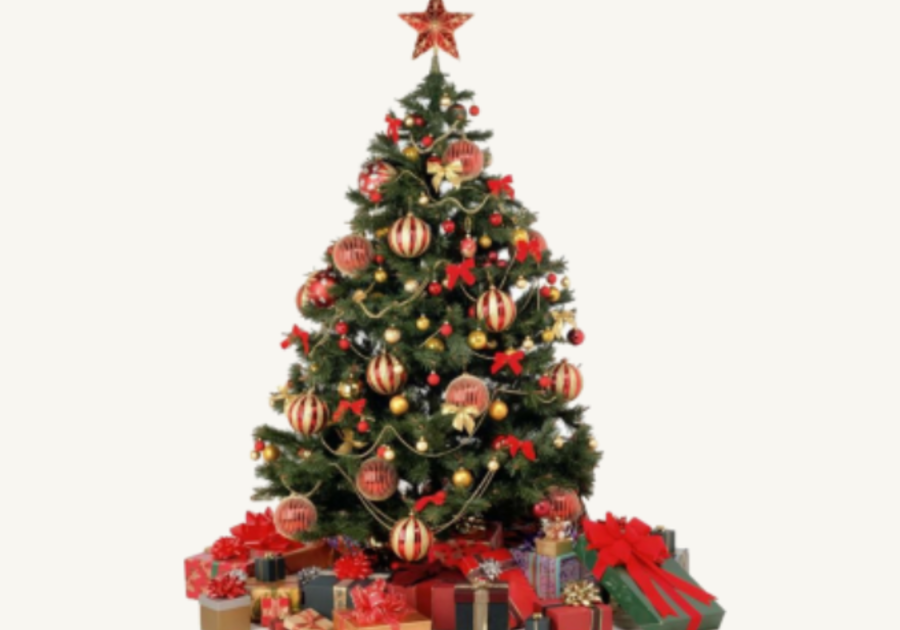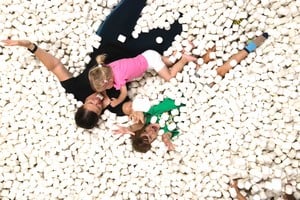The holiday season is a time to deck the halls, string the lights, and get your home ready for festive gatherings. But for those with allergies, all those beautiful decorations can bring some unwanted visitors—dust, mold, and pet dander. While holiday decorations bring joy and cheer, they can also be a source of allergens that aggravate your symptoms, making it harder to enjoy the season.
In this blog, we’ll explore how holiday decorations can trigger allergies and share tips on how to minimize allergens, whether you prefer artificial or real trees, garlands, and ornaments.
How Holiday Decorations Can Trigger Allergies
Holiday decorations, whether stored away for months or fresh from the outdoors, can accumulate allergens that trigger reactions like sneezing, coughing, and itchy eyes. Here are the most common culprits:
- Dust: Decorations that have been packed away in the attic or basement all year can collect dust and dust mites, which are common allergens. As soon as you pull them out of storage, the dust gets stirred up, triggering allergic reactions.
- Mold: Mold thrives in damp environments, and holiday decorations stored in humid areas like basements, garages, or attics are prime spots for mold growth. Mold spores can become airborne when you unpack your decorations, causing allergy flare-ups.
- Pet Dander: If you have pets, their dander can settle on decorations, artificial trees, and fabric garlands. Even if you keep your home clean, pulling out old decorations can stir up pet dander that may have accumulated over time, worsening allergy symptoms.
- Real Trees and Plants: Live Christmas trees, wreaths, and garlands can carry mold, pollen, and sap. When brought indoors, they release these allergens into your home, which can irritate the respiratory system. For those sensitive to mold or pollen, real greenery can cause sneezing, wheezing, and congestion.
Tips for Keeping Holiday Decorations Allergen-Free
The good news is, you don’t have to give up on holiday decorations to avoid allergens! With a few precautions and simple cleaning methods, you can keep your home festive and allergy-friendly.
1. Clean Decorations Before Using Them
Before setting up your holiday decorations, give them a good cleaning to remove dust, mold, and pet dander:
- Artificial Trees and Garlands: Wipe down artificial trees, wreaths, and garlands with a damp cloth to remove dust. You can also use a vacuum cleaner with a brush attachment to clean hard-to-reach areas.
- Ornaments and Figurines: Dust or wash ornaments, especially those with fabric or intricate designs, where dust can settle. Consider rinsing washable ornaments with warm water and mild soap, and allow them to air dry before decorating.
- Fabric Decorations: Wash holiday-themed tablecloths, stockings, and tree skirts in hot water before using them to eliminate dust mites and pet dander.
2. Store Decorations in Airtight Containers
Proper storage can make a big difference in reducing allergens. Instead of cardboard boxes, use airtight plastic containers to store decorations. These containers will prevent dust and moisture from getting in, reducing the risk of dust accumulation and mold growth. Label the containers clearly so you can easily find your decorations next year without having to rummage through dusty boxes.
3. Rinse Real Trees and Greenery
If you prefer a live Christmas tree or fresh wreaths, take steps to minimize the allergens they may bring into your home:
- Rinse the Tree: Before bringing a real tree indoors, give it a good rinse with a garden hose to remove dirt, pollen, and mold spores. Let it dry thoroughly in a garage or on a covered porch before setting it up inside.
- Choose Allergy-Friendly Plants: Consider choosing a different species of tree, such as a fir or spruce, which may carry fewer allergens than pines. For those who are especially sensitive, opting for artificial greenery may be a better option.
- Limit Indoor Time: Since live trees can continue to shed pollen and mold spores indoors, try to limit the amount of time they’re kept in your home. You can also run an air purifier to help capture allergens in the air.
4. Be Mindful of Scented Decorations
Many holiday decorations come with added scents, such as cinnamon pinecones or fragrant candles, which can also irritate those with respiratory conditions. Synthetic fragrances can trigger allergic reactions or asthma attacks, especially in those who are sensitive to strong odors.
Instead of using artificial scents, opt for natural alternatives, like using essential oils in a diffuser, or choose unscented decorations to keep your home festive without compromising air quality.
Preventing Allergies While Enjoying Holiday Decor
In addition to cleaning and storing decorations properly, there are a few extra precautions you can take to ensure your home remains as allergen-free as possible during the holiday season:
- Use a Humidifier: Dry indoor air can worsen allergy symptoms. Using a humidifier can help keep the air moist, preventing nasal passages from drying out and making it easier to breathe.
- Vacuum Frequently: Holiday gatherings often mean more foot traffic in your home, which can stir up allergens. Regularly vacuum carpets, rugs, and furniture to remove dust, pet dander, and other allergens that may have settled on surfaces.
- Keep Pets Away from Decorations: If you have pets, keep them away from your holiday decorations to minimize the amount of pet dander that can collect on your tree or garlands.
When to See an Allergy Specialist
If you or a family member experience persistent allergy symptoms, such as sneezing, coughing, or congestion, even after taking these precautions, it might be time to seek help from an allergist. Prolonged exposure to allergens can lead to sinus infections or asthma flare-ups, and professional help may be needed to manage your symptoms effectively.
At ENT and Allergy Associates, our team of allergists and immunologists can diagnose and treat your holiday-related allergies, helping you enjoy the festive season without the discomfort of allergy symptoms.
Conclusion
Holiday decorations are a joyful part of the season, but they can also trigger allergies if not properly cleaned or stored. By taking simple steps to clean and store your decorations carefully, you can minimize allergens in your home and enjoy a festive, allergy-free holiday season. If your allergies persist or worsen, consider making an appointment with ENT and Allergy Associates for specialized care to keep your allergies in check.



